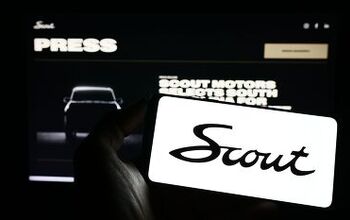Safety Group Leans on Ford to Recall 1.3 Million Explorers

After receiving negative attention from various policing agencies over a potential carbon monoxide leak in Explorer-based Interceptor Utility vehicles, Ford is being urged by the Center for Auto Safety to recall over a million vehicles. While the automaker hasn’t yet done so, it hasn’t been sitting on its hands, either. The automaker issued technical service bulletins to service centers, dispatched its own investigative teams to examine police fleets, and said it would work with the National Highway Traffic Safety Administration as the agency conducted a probe of its own.
Ultimately, Ford said the vehicles were safe — attributing the claimed monoxide leaks to aftermarket modifications common on police vehicles. However, it also agreed to examine and repair any Explorer (for civilian or official use) in the hopes of reassuring worried owners. Meanwhile, customer complaints ballooned after news of the story broke.
In July of 2016, the NHTSA had fewer than 200 Explorer-related grievances on file. The Center for Auto Safety claims that number has now grown to 1,400.
Some of these reports could be due to media-induced anxiety. But many drivers still report strong-smelling exhaust fumes under acceleration and feeling light-headed behind the wheel. Some have even taken legal action, and at least one couple saw Ford repurchase their 2016 model year Explorer — claiming they were too afraid to drive it.
While the NHTSA points to tiny cracks in the exhaust manifold as a possible culprit, it has not definitively linked carbon monoxide exposure to any of the injuries reported by police departments. The investigation now includes Ford Explorers ranging from the 2011 to 2017 model years, but again, there’s no conclusive finding.
That’s not good enough for the Center for Auto Safety. In a public letter addressed to Ford CEO Jim Hackett, the group condemned the automaker for not recalling all 1.3 million last October when initially asked to do so. It claims complaints to the NHTSA have increased by 900 percent since July 2016.
“In response to thousands of complaints by Ford owners of being exposed to dangerous levels of toxic chemicals, and despite the owner’s manual for their vehicles noting the ‘dangerous effects’ of exposure to Carbon Monoxide, Ford continues to insist there’s nothing to see here,” said Jason Levine, executive director of the Center for Auto Safety.
“Ford needs to stop sending mixed messages to Explorer owners and passengers, including senior citizens and parents of young children, that the vehicles are ‘safe,’ and that repairs are available only for ‘peace of mind.’ Since some Ford dealers are responsibly replacing cracked exhaust manifolds, it is time for Ford to take a more serious step, recall all of these vehicles, and inspect and replace cracked exhaust manifolds,” Levine concluded.
According to Automotive News, Ford issued a corporate response to the letter — stating that it takes the matter seriously but has found nothing to indicate there is anything wrong with the SUVs in question.
“Explorers are safe,” spokeswoman Elizabeth Weigandt said. “Ford’s investigation and extensive testing has not found carbon monoxide levels that exceed what people are exposed to every day. The safety of our customers is paramount. We encourage customers with carbon monoxide concerns to bring their vehicle to their local Ford dealer for a free service designed to reduce the concern. If they are not satisfied with the service, we encourage them to call our dedicated hotline at 888-260-5575.”
As for what the free service entails, TTAC’s Bozi Tatarevic found that Ford’s technical service bulletins amounted to telling centers to use seam sealer to shore up a few holes — but doesn’t appear to deal with the possibility of a cracked manifold. But if there’s actually no issue, as Ford claims, then the repairs are only being performed for peace of mind anyway.
[Image: Ford Motor Company]

A staunch consumer advocate tracking industry trends and regulation. Before joining TTAC, Matt spent a decade working for marketing and research firms based in NYC. Clients included several of the world’s largest automakers, global tire brands, and aftermarket part suppliers. Dissatisfied with the corporate world and resentful of having to wear suits everyday, he pivoted to writing about cars. Since then, that man has become an ardent supporter of the right-to-repair movement, been interviewed on the auto industry by national radio broadcasts, driven more rental cars than anyone ever should, participated in amateur rallying events, and received the requisite minimum training as sanctioned by the SCCA. Handy with a wrench, Matt grew up surrounded by Detroit auto workers and managed to get a pizza delivery job before he was legally eligible. He later found himself driving box trucks through Manhattan, guaranteeing future sympathy for actual truckers. He continues to conduct research pertaining to the automotive sector as an independent contractor and has since moved back to his native Michigan, closer to where the cars are born. A contrarian, Matt claims to prefer understeer — stating that front and all-wheel drive vehicles cater best to his driving style.
More by Matt Posky
Latest Car Reviews
Read moreLatest Product Reviews
Read moreRecent Comments
- Offbeat Oddity I would have to test them out, but the Corolla might actually have a slight edge. I'd prefer the 2.0 in both cars, but to get one in a Civic with a decent amount of equipment, I'd be stuck with the Sport where the fuel economy suffers vs. the Corolla. If the Civic EX had a 2.0, it would be a much tougher decision.
- User get rid of the four cylinders, technology is so advanced that a four litre V8 is possible.. and plausible.. cadillac had a serious problem detuning v8s in the past, now theyre over-revving the fours and it sounds horrible.. get rid of the bosses and put the engineers in the front seat..
- BOF Not difficult: full-size body-on-frame sedan, V8, RWD, floaty land yachts. Unabashed comfort and presence. Big FWD Eldo too. While I’m at it, fix Buick much the same way just a little less ostentatious and include a large wagon w/3rd row.
- Jeff I noticed the last few new vehicles I have bought a 2022 Maverick and 2013 CRV had very little new vehicle smell. My 2008 Isuzu I-370 the smell lasted for years but it never really bothered me. My first car a 73 Chevelle and been a smoker's car after a couple of months I managed to get rid of the smell by cleaning the inside thoroughly, putting an air freshener in it, and rolling the windows down on a hot day parking it in the sun. The cigarette smell disappeared completely never to come back. Also you can use an ozone machine and it will get rid of most odors.
- Lou_BC Synthetic oil for my diesel is expensive. It calls for Dexos2. I usually keep an eye out for sales and stock up. I can get 2 - 3 oil and filter changes done by my son for what the Chevy dealer charges for one oil change.


































Comments
Join the conversation
If it's really just some holes in the rear of the body that need to be sealed, then fine, but it would be nice if Ford would say whether or not they've found any cracked manifolds.
Kudos to Matt for a balanced article.